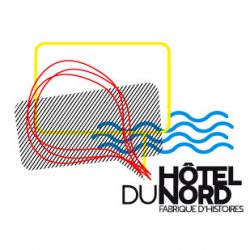 We continue to put online the texts of the speakers at the meeting of 2 March 2013 in Venice following the signing of the Faro Convention by the Italian state (see the presentation of the meeting and see the texts already online). Here is the text of the speech of Raju, deputy delegate for culture, Marseille European Capital of culture and new Technologies. President of the Heritage Commission 15/16. Ladies and gentlemen, following our election in March 2008, I made a diagnosis of territory. Very quickly it became clear that the heritage issue was a fundamental issue for our sector. The work that Mrs. Christine BRETON had done, which we have just heard, has allowed many people to seize this issue. The creation of the heritage Commission, at the request of Mrs Samia GHALI, allowed us to organise all these energies scattered throughout our territory. The Commission shall be composed of:
We continue to put online the texts of the speakers at the meeting of 2 March 2013 in Venice following the signing of the Faro Convention by the Italian state (see the presentation of the meeting and see the texts already online). Here is the text of the speech of Raju, deputy delegate for culture, Marseille European Capital of culture and new Technologies. President of the Heritage Commission 15/16. Ladies and gentlemen, following our election in March 2008, I made a diagnosis of territory. Very quickly it became clear that the heritage issue was a fundamental issue for our sector. The work that Mrs. Christine BRETON had done, which we have just heard, has allowed many people to seize this issue. The creation of the heritage Commission, at the request of Mrs Samia GHALI, allowed us to organise all these energies scattered throughout our territory. The Commission shall be composed of:
- of neighbourhood associations,
- of independent artists,
- of cultural associations,
- Of professional art companies,
- of business leaders,
- of cultural mediators,
- of social workers.
I'm the president, surrounded by the municipal Employees of the Culture department. The first two years we met one morning a month. The themes were numerous and varied. I'll quote you a few.
- Classification and registration of places, buildings, conservation measure,
- File deposit as "the soap route" with the MP13 Association,
- Backing of Vasarely's paintings,
- Preservation and development of the natural Heritage (Mourepiane, Nerthe, Hill consolate, Cascade Aygalades).
We have had great successes like the ranking of the station of the ESTA, the progress on many dossiers concerning the natural heritage. In our committee, we are experimenting with the conflicting dimension of heritage because it is a place of mediation. In fact, contradictory interests are expressed in a democratic space. The decisions we make are always in the interest of the greatest number. This Commission acts as a mediator between the various bodies to which the heritage communities are confronted: City of Marseille, regional Directorate for Cultural Actions, Communauté Urbaine de Marseille, Marseille Provence 2013. So the locals get answers because they have their interlocutor in front of them. We dedicate 3 to 4 committees to prepare the European municipalities heritage Days, which are the highlight of our annual work. In fact, during these three days, we organize a dozen heritage walks, expos, the book fair, lectures, etc. It is necessary to know, and this is extraordinary, that in 2012, it is 6000 people who participated in these days European municipalities of the heritage of the 15th and 16th arrondissements of Marseille. When we know the history of the northern neighbourhoods, the bad reputation that sticks to its inhabitants, believe me it is a wonder. During these three days, Marseille discover that in this pool of dwellings of 100 000 souls, there are unsung, protected and sometimes splendid natural places. They also discover the economic dynamism (soapy of the Midi, Arnavaux) and cultural (city of the street Arts). And especially the greatest richness of this territory to know its inhabitants. Not only are they the custodians of the industrious past of Marseille but their sense of hospitality, hospitality and sharing are remarkable. It is for them, to highlight them, that we had the idea to create a network of bed and breakfasts. I will let you guess the sarcasm that this project has aroused! "Welcoming tourists to the northern neighbourhoods what a joke!" Well let me tell you, dear listeners, that today this network of bed and breakfast organized by the Coopérative Hotel du Nord is a great success! associated with MP13, distributed by the Guide to the backpacker, Hotel du Nord is an example of alternative economic development. Finally, the heritage Commission of the 15th and 16th arrondissements of Marseille was able to model its functioning, to share it with two other district councils, soon three and the town hall of Trolles (40 000 inhabitants). As such, we are responsible by the Council of Europe and the European Commission for preparing part of the debates which will take place next September at the European heritage Forum. You think that I would never have imagined doing such prestigious actions. But what touches me the most is to be here, in Venice, in front of you. I who came from a popular family, coming for half, from the mountains of Barbagia in Sardinia; It is because Mrs Samia GHALI and I grew up in these quarters, that we know the bitter taste of humiliation, that we understood the issue of integrated heritage. We have been inspired by this concept to restore the dignity of the inhabitants and we have succeeded. I am happy to share this pride with you. Grazie per il vostro. Pascale Raju, Venice March 2013

